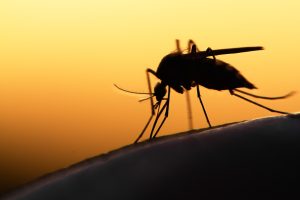Understanding Mosquito Habitats in Canada
Mosquitoes in Canada are more prevalent in some regions than others, primarily due to climate and environmental conditions variations. Areas such as certain parts of Alberta, southern British Columbia, some northern territories, and mountainous regions generally see fewer mosquitoes. These areas’ cooler and drier climates create less hospitable conditions for mosquitoes, which require warm temperatures and standing water for breeding.
Factors Affecting Mosquito Populations
The presence of mosquitoes is significantly influenced by local weather patterns, the availability of stagnant water sources for breeding, and the natural landscape. Regions experiencing higher temperatures, humidity levels, and abundant stagnant water sources are hotspots for mosquito activity. Conversely, areas with fewer stagnant water sources and more incredible, drier climates tend to have lower mosquito populations.
Seasonal Variations in Mosquito Activity
While certain areas in Canada may have fewer mosquitoes, it’s important to note that mosquito activity can fluctuate seasonally. Most regions will see an increase in mosquito presence during the warmer months when conditions are ideal for their life cycle. Preparing for these seasonal variations is key to managing mosquito populations effectively.
Global Perspective on Mosquito Prevalence
Globally, mosquitoes are found in a wide range of environments, with their numbers dwindling in areas that experience extreme cold. While Canada has regions with lower mosquito activity, understanding global mosquito behaviour can provide insights into effective control measures and the importance of targeted mosquito management strategies.
The Importance of Professional Mosquito Control
Dealing with mosquitoes goes beyond mere annoyance; it is a matter of health and comfort. Mosquitoes are known vectors of various diseases, making their control an essential service. Professional services, such as those provided by Birch Fumigators, offer effective solutions to manage and reduce mosquito populations around your property, ensuring a safer and more enjoyable outdoor environment.
Why Choose Birch Fumigators for Mosquito Control
Birch Fumigators specializes in comprehensive mosquito control strategies tailored to Canadian climates and landscapes. Employing the latest in mosquito management technology and environmentally friendly practices, Birch Fumigators can significantly reduce mosquito presence in your area, allowing you to enjoy your outdoor spaces without the nuisance and health risks associated with these pests.
Contact Birch Fumigators Today
If you’re tired of battling mosquitoes and looking for a reliable, effective solution, consider Birch Fumigators for your mosquito control needs. Our team of experts is ready to provide you with a customized mosquito management plan that suits your specific situation and location. Contact us today to learn more about our services and how we can help you achieve a mosquito-free environment.

